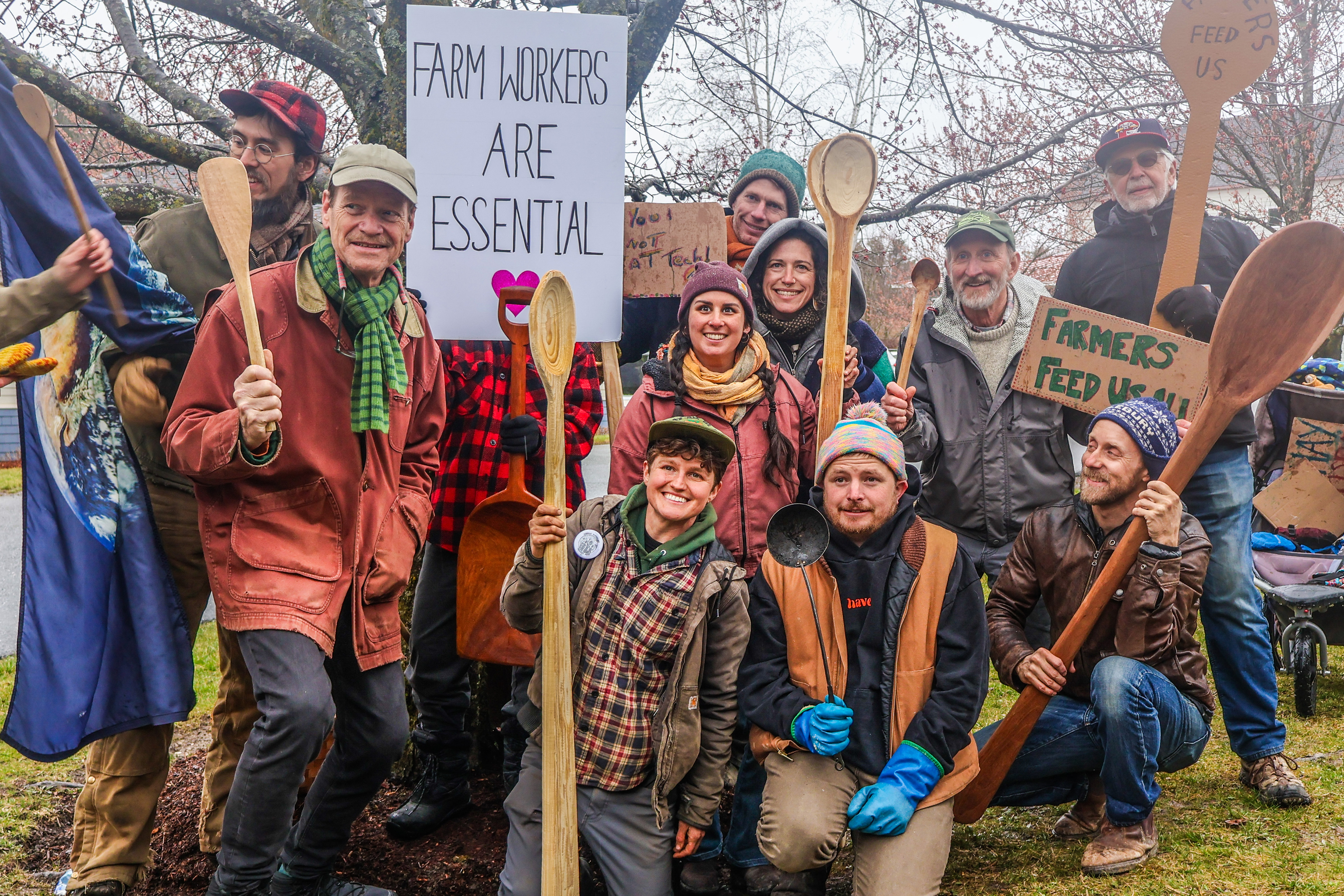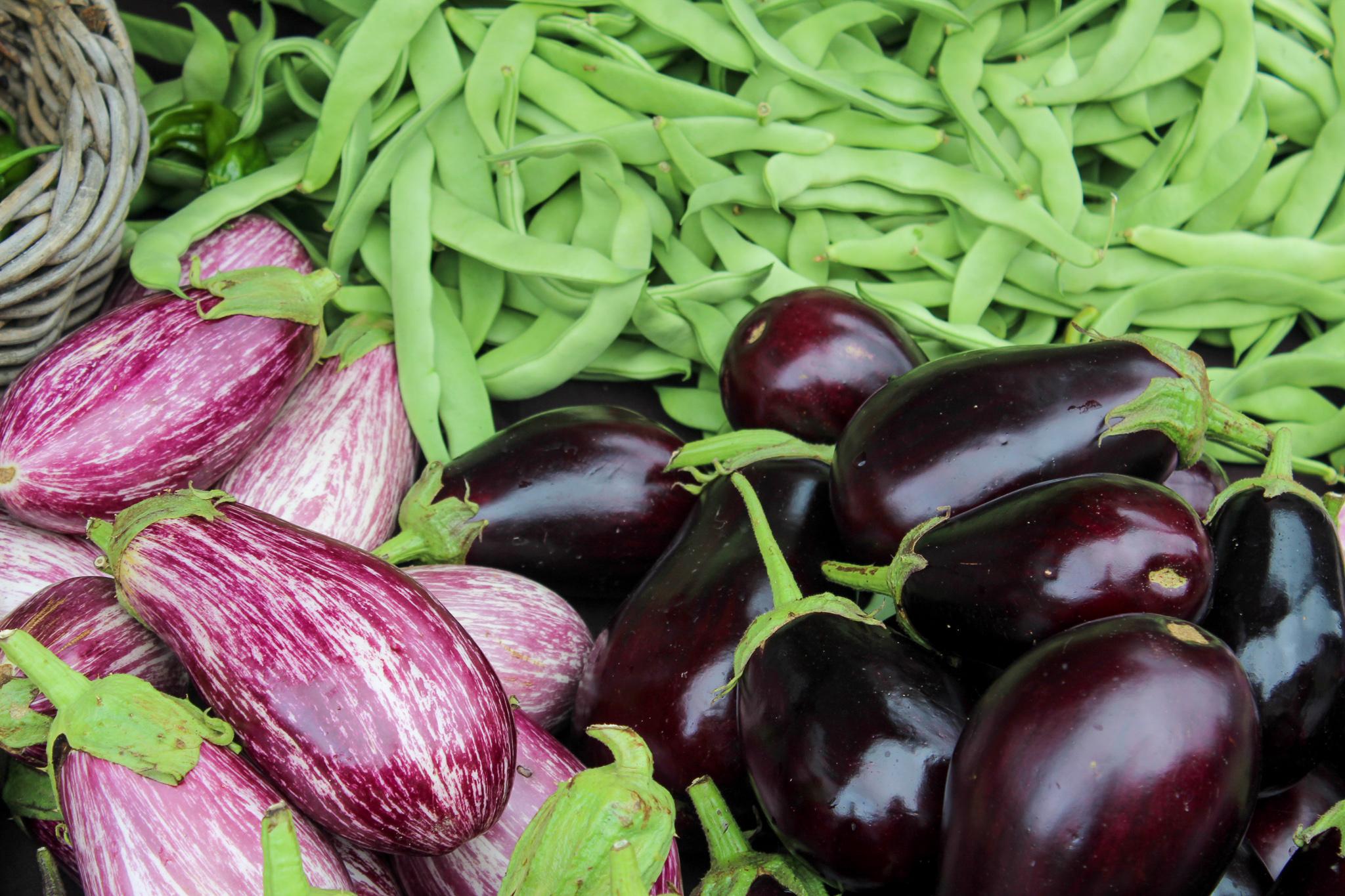April 18, 2025
On the evening of April 16th, dozens of farmers, farmworkers, and community members gathered outside the USDA offices at 68 Catamount Park in Middlebury as part of a regional Farmer Day of Action. Organized by the Northeast Organic Farming Association of Vermont (NOFA-VT), the event highlighted the urgent need for federal policy that supports small and organic farms, values farmworkers, and invests in just, sustainable agriculture—and a more just and thriving future for all.

Farmers in Vermont have been contending with flip-flopping tariffs that affect the price of everything from maple processing equipment to greenhouse scaffolding, layoffs of local USDA service providers, and cancellations of federal food system investments like the Partnership for Climate Smart Commodities and the Local Food Purchase Assistance Cooperative Agreement Program (LFPA). Tinmouth farmer Meadow Squier, reflecting on the loss of the LFPA program—which purchased food from local farms for food banks—shared: “These programs were instrumental to us when we were a beginning farm. What I see is this funding cut is a way to continue to push small family farms into extinction and make agriculture a corporate system.”
The action brought together a broad coalition of local farmers and allies, who connected with each other and shared how recent federal funding cuts, immigration crackdowns, USDA layoffs, and trade policy shifts are impacting their livelihoods and communities. A few speakers also addressed the crowd, including Jacob Powsner, a maple syrup producer from Chittenden.
“As we’ve all witnessed, the current swamp administration down in D.C. is gutting the support systems for our food system. And this isn’t just radical existential dread for the policy wonks or bureaucrats. We’re talking about real harm to real people. This is a systematic gutting of food security in favor of harmful, racist immigration policy and of ‘border security,’” said Powsner. “We’re done with waiting and seeing. We’re here to say, 'No more.'”
Farmers showed up with signs, holding up messages such as “Cut hay, not USDA,”
“Farmworkers Are Essential,” and “Farmers Feed Us All.” Many attendees also brought larger-than-life long-handled spoons—carved from wood or cut from cardboard—in tribute to the parable of the long spoons, a folktale that reminds us we already have the tools for food security; we just need to use them to reach across the table and feed one another.
Attendees also brought food to share to model that when we work together, we can keep each other fed. A pile of bread baked with local grains, local organic chocolate milk, and a steaming pot of shared soup added warmth and joy to the evening, even as speakers addressed serious challenges. The gathering closed with a collective call for federal leaders to prioritize people over profit and to reinvest in the future of small-scale, regenerative farming.
“You know things are bad when you have vegetable farmers coming out on April 16. I have a to-do list that can stretch from here to Bar Harbor and back,” said Stoni Tomson, a lettuce vegetable, fruit, and nut farmer in Huntington. “I think the on-again, off-again tariffs—all the chaos—it’s really part of a larger full frontal assault on our community food systems…I want to see all our farmers flourish.”

